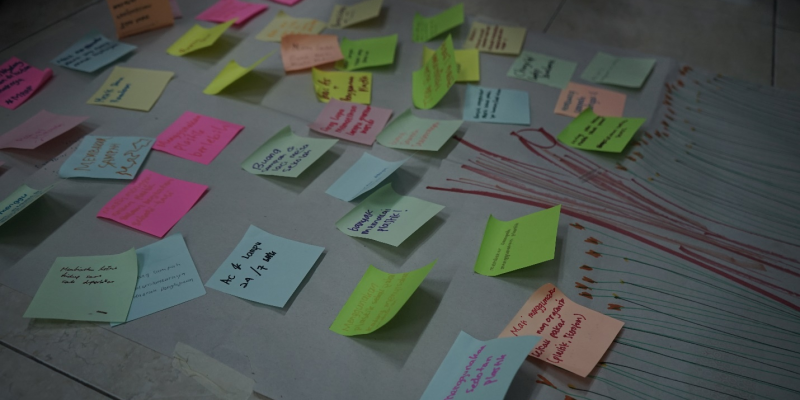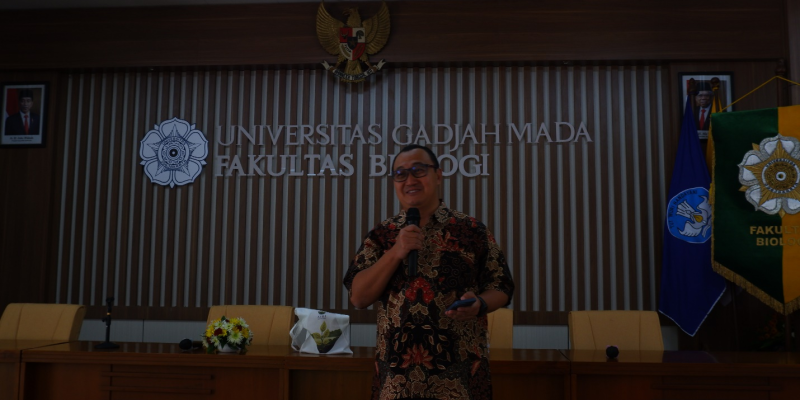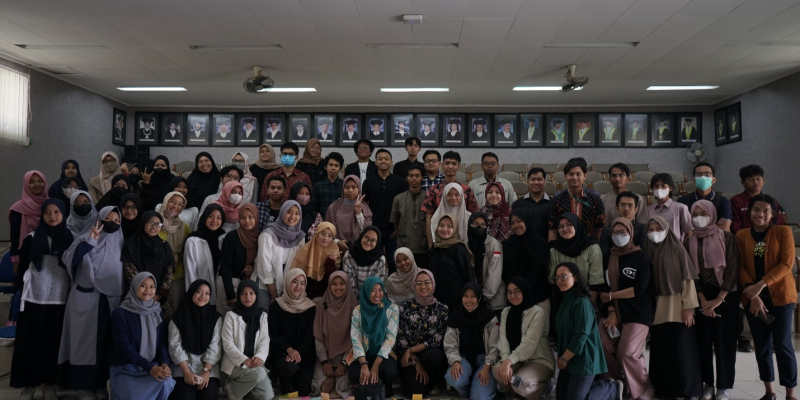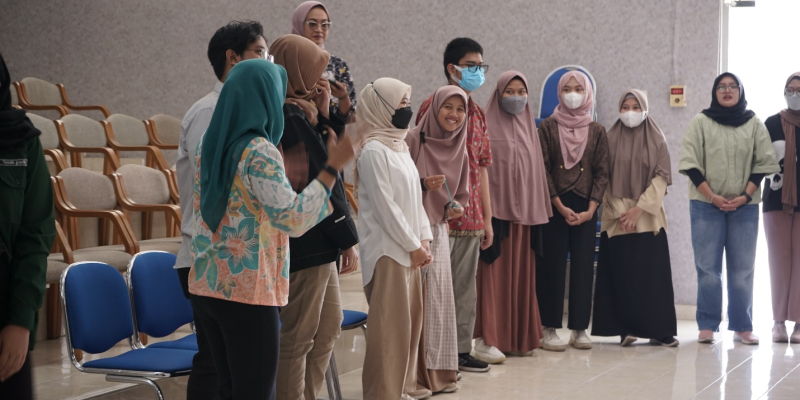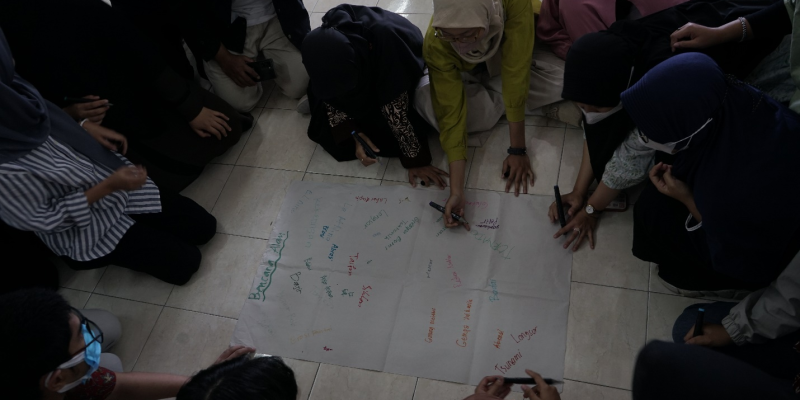Planetary health focuses on the health of human civilization and health of the natural systems on which it depends. Focusing on environmental sustainability and conservation, the Alam Sehat Lestari Foundation (ASRI) integrates health services with the preservation of forests with high conservation value to create healthy, prosperous communities and sustainable nature. ASRI is a foundation, a non-profit/non-profit organization that operates in the field of planetary health in Kalimantan.
Aiming at sharing experiences and nature conservation movements, ASRI in collaboration with the Faculty of Biology UGM held a public lecture entitled “Planetary Health Lecture: The Harmony of Human and Nature” on 21 and 22 September 2023 at the Tropical Biology Auditorium with guest speaker Etty Rahmawati, Planetary Health Education Manager from the Alam Sehat Lestari Foundation. The public lecture was attended by more than 60 students from Faculty Biology and outside Faculty Biology UGM. The activity, which lasted for 2 days, was in line with support for the Sustainable Development Goals (SDGs) to support the inclusive education of the younger generation (SDG 4) in increasing awareness of environmental preservation and conservation in ecosystems, especially terrestrial ecosystems (SDG 15).
Dr. Eko Agus Suyono, M.App.Sc. as Vice Dean for Research, Community Service, Collaboration and Alumni Affairs of the Faculty of Biology, was also present at the public lecture and gave an opening remarks as well as opening the public lecture. Dr. Eko welcomed the the public lecture as a form of implementation of collaboration between the Faculty of Biology UGM and the Alam Sehat Lestari Foundation in line with the implementation of the Sustainable Development Goals in realizing a great partnership (SDG 17). Dr. Eko also conveyed regarding the MSIBC Biology UGM Building which has been completed and will be used as a Biodiversity Research Center and is expected to also contribute to the world of conservation in Indonesia.
The public lecture took place not only by listening to material or asking questions and answers, but also informative games guided by Mrs. Etty to increase participants’ awareness of the importance of planetary health and what contribution can be made to this. In the first game, participants are guided to say one word and respond with a word or sentence that is the result of that sentence. In the game, participants are directed to be aware of human contribution to natural damage and so on.
In the presentation session, Mrs. Etty explained further about planetary health. The background to the importance of human awareness of planetary health is based on increasing poverty rates, increasing CO2 emissions, ocean acidification, energy and water consumption, increasing use of pesticides and decreasing the number of rainforests on earth. This is in line with the 13th SDG point to support sustainability to handle world climate change. ASRI as a non-profit organization also focuses on integrating health services according to the needs of local communities with forest conservation through programs including reforestation, nurseries, chainsaw exchange, sustainable agriculture, goats for widows, ASRI Teens, ASRI Kids, counseling, training and public lectures. targeting various groups from local communities to pupils and students as the next generation. One of the programs that is interesting and in line with the SDGs is health services with a payment system based on agricultural products which can be deposited into non-cash payments through bartering for handicraft products, livestock dung, and so on. This certainly supports improving community welfare (SDG 3), and through increasing more decent community jobs and economic growth (SDG 8).
Participants were very enthusiastic about the public lecture that took place and actively participated in the question and answer session as well as the public lecture discussion session. It is hoped that this public lecture can increase awareness regarding environmental preservation and conservation as well as open wider opportunities for the academic community, especially students at the Faculty of Biology UGM, to contribute to environmental conservation.

